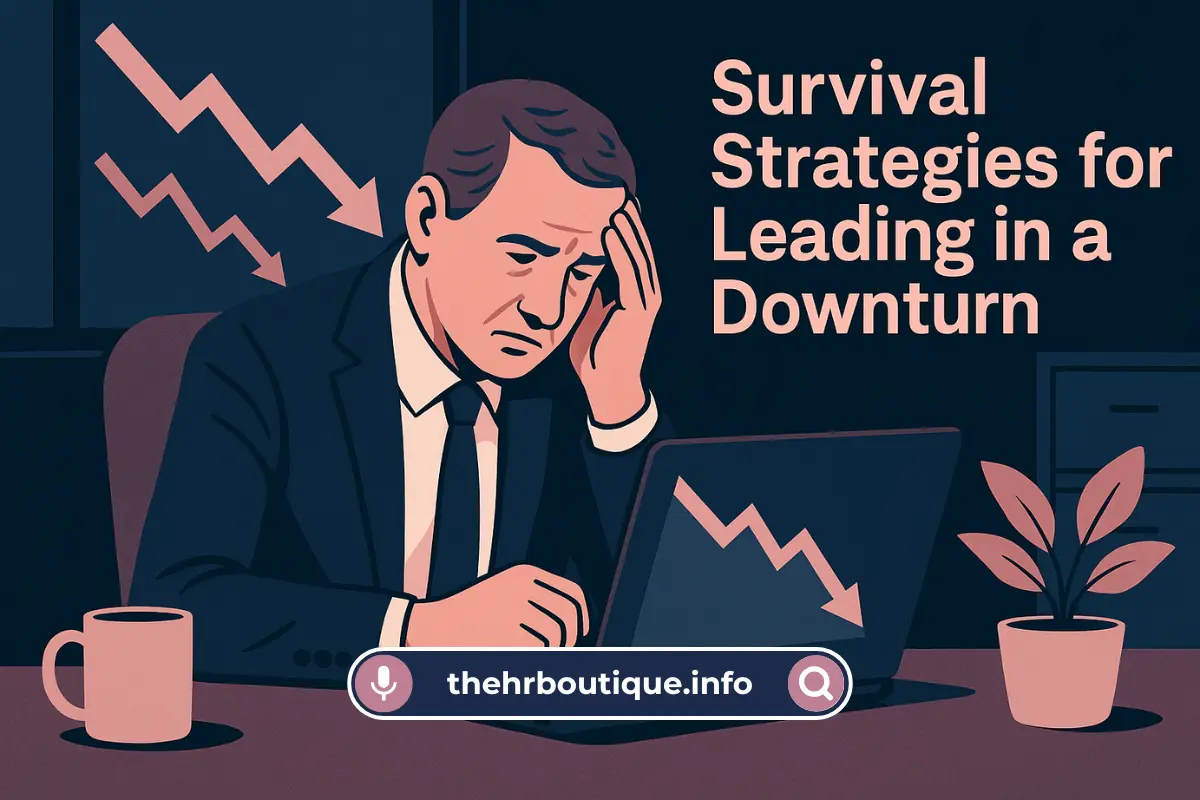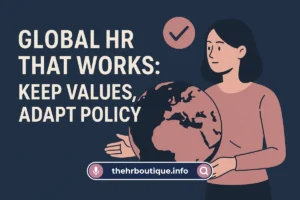Look, I’m not gonna sugarcoat this – when the economy tanks, everything gets messy. I remember the 2008 crash like it was yesterday. One minute we’re celebrating record profits, the next we’re having hushed conversations in the break room about who might get axed.
Here’s what I’ve learned from living through multiple downturns: how you handle the bad times determines whether your best people stick around for the good times.
So let’s cut through the corporate BS and talk real strategies that actual humans (not HR robots) can use to support their teams when money gets tight.
1. Stop the Radio Silence (Seriously, It’s Killing Us)
Remember that time in school when the teacher would say “pop quiz,” and everyone would panic? That’s exactly what happens when leadership goes quiet during tough times.
What Works Better:
- Weekly “Here’s Where We’re At” Updates – Even if it’s just “No new decisions yet”.
- Q&A Sessions Where You Actually Answer Questions – No dodging with “I’ll circle back on that”.
- Admitting When You Don’t Know – “We’re figuring this out too” builds more trust than corporate doublespeak.
Pro Tip: If you’re nervous about saying the wrong thing, record yourself explaining it to a friend first. Then use those same words with your team.
2. Get Weird With Cost-Cutting (Before You Fire Anyone)
During the pandemic, my friend’s company did something wild – they asked everyone to take a temporary 20% pay cut… but gave Fridays off to compensate. You know what? Most people loved it.
Creative Alternatives to Layoffs:
- 4-Day Workweeks (Same pay, just condense the hours).
- Job Sharing (Two people split one full-time role).
- Voluntary Sabbaticals (Some folks would kill for 3 months off).
- Skill Swaps (Let your accountant try marketing for a while).
The Key: Present options, not ultimatums. People will surprise you with what they’re willing to try.
3. Help With the Money Panic (Because Ramen Gets Old Fast)
When my neighbor got laid off last year, the worst part wasn’t losing the job – it was the sheer terror of not knowing how to pay bills.
Actual Useful Help (That Won’t Bankrupt You):
- Free Financial Counseling Sessions (Most people don’t know how to budget in crisis mode).
- Emergency Interest-Free Loans (Even $500 can prevent an eviction).
- Grocery Gift Cards (Sounds small, but $100 for food removes so much stress).
Real Talk: The company that helped me negotiate with my landlord during a rough patch? I’d walk through fire for them now.
4. Stop Pretending Everyone’s Okay (They’re Not)
I’ll never forget the all-hands meeting where our CEO teared up while admitting how scared he was. You know what happened? The whole company rallied.
Mental Health Support That Actually Helps:
- Train Managers to Spot Burnout (Hint: It’s not always obvious).
- Normalize Therapy (Make the EAP info impossible to miss).
- Lead With Vulnerability (“This is hard for me too” goes miles).
Warning: That “unlimited PTO” policy? Worthless if no one feels safe using it.
5. Turn Survival Mode Into Growth Mode
The best career move I ever made happened during a recession – my boss taught me to code when my marketing job was at risk.
Ways to Future-Proof Your Team:
- Lunch & Learns (Have different departments teach their skills).
- “Swap Days” (Let people try other roles for a day).
- Resume Workshops (Even if it’s scary, help people prepare).
The Irony: The more you invest in people’s growth, the more likely they are to stay.
6. Celebrate the Hell Out of Small Wins
During the 2020 lockdowns, my team started doing “Tiny Victory Fridays” – we’d share anything from “I finally got my kid to do homework” to “I saved the company $10K.”
Morale Boosters That Don’t Cost Much:
- Personal Thank You Notes (Handwritten, not emailed).
- Surprise Half-Days (The ultimate currency).
- Public Shout-Outs (Specific praise > generic “great job”).
Fun Fact: The sillier the recognition, the more people remember it. I still have the “Spreadsheet Wizard” trophy from 2012.
7. The Comeback Plan (Because This Won’t Last Forever)
The worst mistake I’ve seen? Companies that survive a downturn then go right back to business as usual like nothing happened.
How to Rebuild Right:
- Stay Interviews (Ask remaining employees what worked/didn’t).
- Promote From Within (Show there’s a path forward).
- Restore Perks Publicly (When possible, make a show of bringing things back).
Truth Bomb: How you behave on the way back up matters just as much as how you acted on the way down.
Final Thought
Years from now, no one will remember the exact profit margins during the 2023 slump. But they’ll remember:
- The boss who fought to keep them employed.
- The company that helped them through a crisis.
- Or… the place that treated them like a line item.
Which one do you want to be?
Your Move: Pick one thing from this list and try it this week. Then come back and tell me how it went – I read every response.
And if this helped, share it with that one leader who’s currently sweating over spreadsheets at 2 AM. They need it.
P.S. Still feeling stuck? Hit reply. I’ve got more war stories and scrappy ideas where these came from. No corporate nonsense – just real talk from someone who’s been there.





